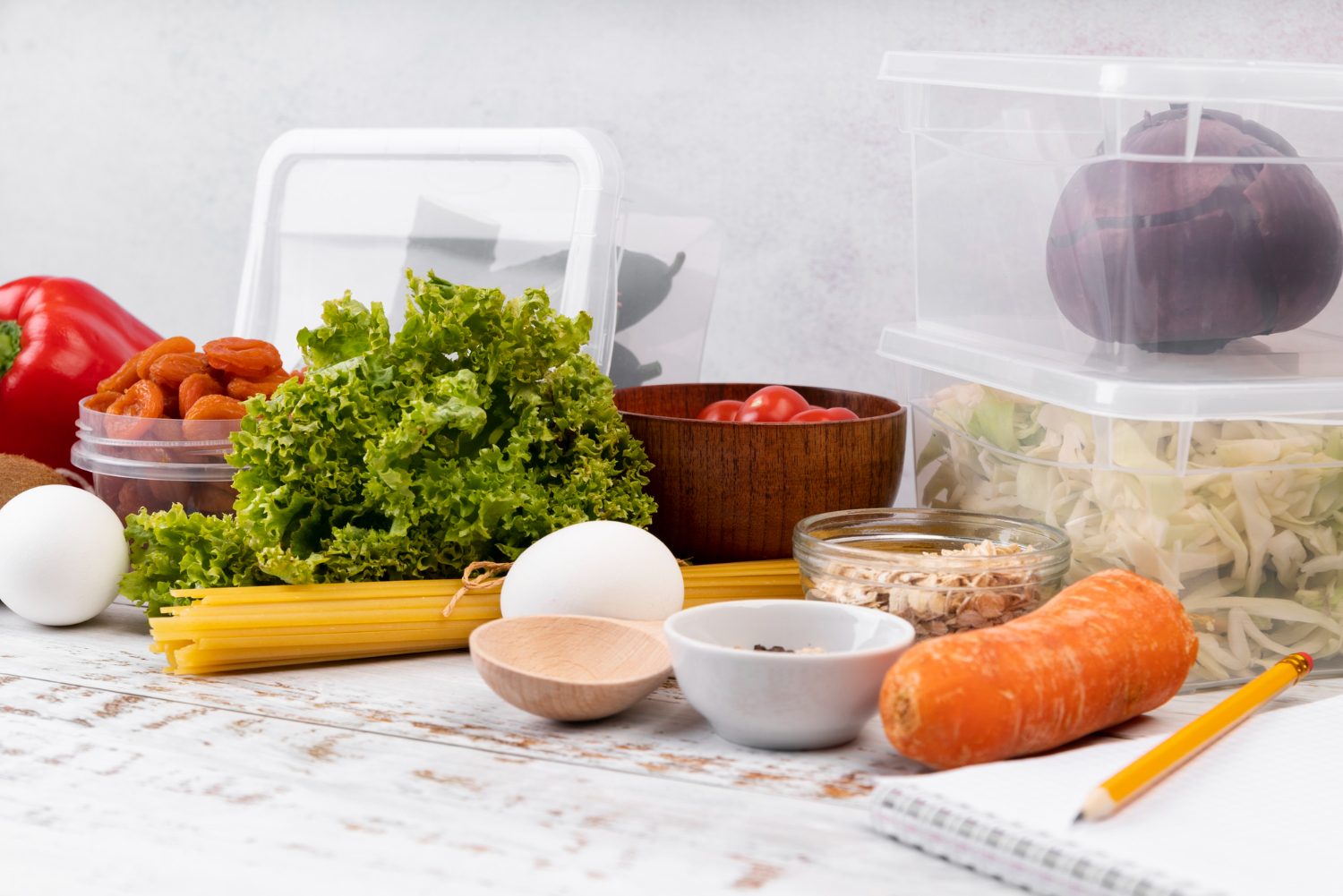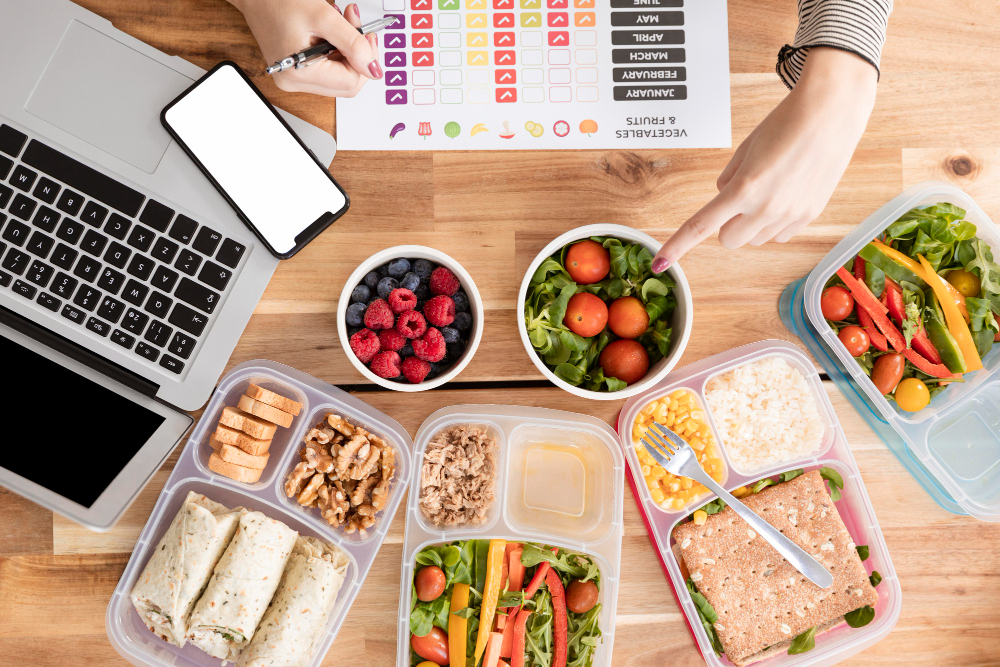Managing food expiration dates may seem like a tedious task, but with the right strategies, it becomes easy and effective. Using food before it spoils not only saves money but also reduces waste and promotes sustainability. This guide will take you through Mindful Expiration Date Management strategies, helping you organize your kitchen, plan meals, and optimize food freshness.
1. Understanding Expiration Dates: What Do They Mean?
Understanding the different types of expiration dates is crucial in preventing food spoilage. Many people misinterpret labels, leading to unnecessary waste.
Best Before vs. Use By Dates
The “best before” date refers to the product’s peak quality. It doesn’t mean the food is unsafe after that date, but the taste and texture may be affected. On the other hand, the “use by” date indicates when the food is no longer safe to eat.

Sell-By Dates and Shelf Life
“Sell-by” dates are more for retailers than consumers. These dates help stores manage inventory, but it doesn’t mean the food expires that day. With proper storage, many foods can last longer than their sell-by dates.
2. Creating a System for Expiration Date Management
A well-organized system is key to mindful expiration date management. By setting up a system in your kitchen, you’ll always know which foods need to be used first.
First In, First Out (FIFO)
One of the best methods is the FIFO system, which stands for “First In, First Out.” This involves organizing food items so that the oldest items are at the front of your pantry or fridge, ensuring they get used before newer purchases.
Labeling and Tracking Food
Make a habit of labeling containers with the date of purchase or expiration. This practice helps track when items need to be consumed, keeping food waste to a minimum.
3. Organizing Your Pantry for Better Expiration Date Management
An organized pantry is essential for Mindful Expiration Date Management. By giving everything a designated place, you’ll be able to monitor expiration dates more efficiently.
Clear Containers for Visibility
Store dry goods like rice, pasta, and grains in clear containers. Not only does this make your pantry look more organized, but it also helps you keep an eye on quantities and expiration dates.
Grouping Similar Items Together
Group similar foods together, such as canned goods, spices, and baking supplies. This helps you quickly find what you need and identify items that are nearing their expiration dates.
Key Point #1: A well-organized system and FIFO method help streamline mindful expiration date management.
4. Setting Up an Expiration Date Reminder System
In today’s digital age, setting up reminders for food expiration dates can prevent items from going to waste.
Using Apps to Track Expiration Dates
Several apps allow you to log expiration dates and send notifications when an item is nearing its expiration. These apps act as a virtual pantry, helping you stay on top of your food inventory.
Setting Calendar Alerts
If you prefer a simpler approach, you can set calendar alerts on your phone. Every time you bring home groceries, set a reminder for a week or two before the food’s expiration date.
5. Smart Shopping Habits for Expiration Date Management
It all starts at the grocery store. By adopting smart shopping habits, you can reduce the chances of buying food that you won’t use before it spoils.
Checking Expiration Dates at the Store
Always check expiration dates when shopping. Reach for items with the furthest expiration dates, especially for perishable items like dairy and meat.
Buying in Smaller Quantities
If you find that you regularly throw out food, consider buying smaller quantities. It’s better to shop more frequently and only buy what you need, rather than letting food go to waste.
6. Meal Planning for Mindful Expiration Date Management
Meal planning is one of the most effective ways to ensure you use up food before it spoils.
Planning Meals Around Expiring Items
When planning your weekly meals, check your pantry and fridge for items that are nearing their expiration dates. Incorporate these foods into your meals to prevent them from going to waste.
Using Leftovers Creatively
Leftovers don’t have to be boring. Get creative by repurposing them into new dishes. For example, roast chicken leftovers can be turned into a delicious soup or salad.
Key Point #2: Meal planning around expiring items prevents waste and encourages creativity in the kitchen.
7. Proper Food Storage Techniques to Extend Shelf Life
Storing food correctly is a critical aspect of Mindful Expiration Date Management. By using proper storage techniques, you can extend the shelf life of many items.
Storing Produce Correctly
Some fruits and vegetables emit gases that speed up the ripening process. Keep ethylene-producing produce like apples and bananas separate from other fruits to prevent them from spoiling prematurely.
Freezing Perishable Items
Many perishable foods can be frozen to extend their shelf life. Bread, meat, and even some dairy products can be frozen and thawed later for future use.
8. Freezer Organization for Mindful Expiration Date Management
A well-organized freezer is essential for maximizing the life of your frozen goods and preventing freezer burn.
Labeling Frozen Foods
Always label frozen items with the date they were frozen. This helps you know how long something has been in the freezer and ensures that you use older items first.
Rotating Frozen Goods
Just like in your pantry, use the FIFO system in your freezer. Place newer frozen goods at the back and older ones at the front to ensure they’re used in time.
9. Avoiding Food Waste with Creative Recipes
To minimize food waste, try using up soon-to-expire foods in creative recipes.
One-Pot Meals for Leftovers
One-pot meals are a great way to use up a variety of leftovers. Combine leftover vegetables, proteins, and grains into a hearty soup, stew, or stir-fry.
Smoothies for Expiring Produce
If you have fruits or vegetables that are about to spoil, throw them into a smoothie. This is a quick and easy way to use up produce while getting a nutrient boost.
Key Point #3: Proper storage and creative recipes can significantly reduce food waste and keep food fresher longer.
10. Batch Cooking to Maximize Food Use
Batch cooking is an excellent way to manage food expiration dates while saving time during the week.
Cooking Large Batches for Freezing
Prepare large batches of meals like soups, casseroles, or stews, and freeze portions for later use. This ensures that none of your ingredients go to waste.
Using Up Perishable Ingredients
When you notice that certain ingredients are about to expire, incorporate them into a large meal that can be stored and enjoyed later.
11. Preserving and Canning to Prevent Spoilage
Preserving and canning are time-honored methods for preventing food from spoiling.
Canning Vegetables and Fruits
If you have an excess of produce, consider canning it. This process extends the shelf life of fruits and vegetables by sealing them in airtight jars.
Pickling Perishables
Pickling is another preservation method that adds flavor while extending the life of produce. Pickled vegetables can last for months when stored correctly.
12. Keeping a Regular Kitchen Inventory
Regularly taking stock of what’s in your kitchen is an essential part of mindful expiration date management.
Weekly Pantry and Fridge Checks
Set aside time each week to check your pantry and fridge. Identify items that need to be used soon and adjust your meal plans accordingly.
Creating a Running Inventory List
Keep a running list of all the items in your pantry, fridge, and freezer. Update this list when you buy new items or use up existing ones to maintain an organized kitchen.
Key Point #4: Regular kitchen inventory checks and batch cooking are key strategies for minimizing food waste.
13. Utilizing Leftovers with Expiring Ingredients
Sometimes, food expiration dates sneak up on you. When this happens, using leftovers wisely is essential.
Turning Leftovers into New Dishes
Instead of reheating leftovers as-is, try transforming them into new meals. For instance, leftover roasted vegetables can be blended into a soup or used as a topping for pizza.
Combining Expiring Items
If you have multiple items nearing expiration, get creative by combining them into one dish. For example, expiring vegetables and meats can be used in a stir-fry or casserole.
14. Avoiding Overbuying to Prevent Food Spoilage
One of the easiest ways to avoid food spoilage is to prevent overbuying in the first place.
Shopping with a List
Always shop with a list of the items you need for the week. Avoid impulse buys, which often lead to excess food that may not be consumed before it spoils.
Sticking to a Budget
Having a budget helps limit your purchases to only the essentials. This reduces the likelihood of overbuying and throwing away unused food.
15. Monitoring Your Food Storage Environment
The environment in which you store your food plays a significant role in how long it lasts.
Maintaining Proper Fridge Temperature
Ensure your fridge is set to the correct temperature, usually between 37°F (3°C) and 40°F (4°C). A too-warm fridge can cause food to spoil faster, while a too-cold fridge can lead to freezer burn.
Using Airtight Containers
Store food in airtight containers to prevent moisture and air from spoiling the food. This method is especially important for dry goods like flour and sugar, as well as leftovers.
Key Point #5: Proper food storage, monitoring the environment, and avoiding overbuying are essential for mindful expiration date management.
16. Sharing Excess Food Before It Expires
If you find yourself with too much food nearing expiration, consider sharing it with friends, family, or your community.
Donating to Food Banks
Many food banks and shelters accept donations of non-perishable goods. Check your pantry for items that are close to their expiration date and donate them before they spoil.
Hosting a Potluck
Invite friends over for a potluck and use up excess ingredients. This is a fun way to enjoy good company while ensuring no food goes to waste.
17. Educating Family Members on Expiration Date Management
Managing food expiration is a household effort. Educating your family on proper food handling and storage can prevent spoilage.
Teaching Kids About Expiration Dates
Teach your kids to check expiration dates and help them understand the importance of not wasting food. Make it a family habit to look at labels before meals.
Assigning Roles in the Kitchen
Assign different family members the task of checking pantry and fridge items. By sharing the responsibility, the whole family becomes more mindful of food management.
18. Mindful Expiration Date Management for Bulk Purchases
Buying in bulk is a great way to save money, but it can lead to food spoilage if not managed properly.
Storing Bulk Foods Wisely
When buying in bulk, divide food into smaller portions and store them properly. Freeze what you won’t use immediately, and label each portion with the purchase date.
Using Bulk Items Regularly
Incorporate bulk items into your daily meals to ensure they get used. For example, if you buy a large bag of rice, plan multiple dishes that use rice throughout the week.
19. Maintaining a Minimalist Kitchen for Expiration Date Management
A minimalist kitchen is easier to manage and reduces food waste.
Keeping Only What You Need
Keep your pantry stocked with only what you need for the week. A minimalist kitchen reduces clutter and makes it easier to track expiration dates.
Rotating Your Stock
As new items come into your kitchen, make sure to rotate them with older items. This practice ensures that older food gets used up first.
20. Reducing Food Waste Through Composting
Even with mindful expiration date management, some food will inevitably spoil. Composting is a great way to reduce food waste and nourish your garden.
Setting Up a Compost Bin
If you have a backyard, consider setting up a compost bin for food scraps. Composting not only reduces waste but also creates nutrient-rich soil for gardening.
Composting Spoiled Produce
Spoiled fruits and vegetables can be composted instead of thrown in the trash. This environmentally friendly solution ensures that even expired food has a purpose.
FAQs
- What is Mindful Expiration Date Management?
Mindful Expiration Date Management refers to the practice of managing and tracking food expiration dates to reduce waste and use food efficiently. - What’s the difference between ‘best before’ and ‘use by’ dates?
“Best before” refers to peak quality, while “use by” indicates the last safe date to consume the food. - How can I prevent food from spoiling?
Use the FIFO method, label containers, and plan meals around expiring items to prevent spoilage. - What apps can help track expiration dates?
Apps like Fridge Pal, NoWaste, and FreshBox help track expiration dates and send reminders. - Can you freeze food close to its expiration date?
Yes, many foods can be frozen to extend their shelf life, including meats, bread, and some dairy products. - What’s the best way to organize my pantry for expiration management?
Use clear containers, label items, and organize your pantry by grouping similar foods together. - How often should I check my kitchen inventory?
It’s a good habit to check your pantry, fridge, and freezer weekly to ensure nothing goes to waste. - Can I use expiring food in new recipes?
Absolutely! Expiring foods can be turned into new dishes, such as soups, stews, or smoothies. - Is it better to buy food in smaller quantities?
If you often find yourself throwing away food, buying in smaller quantities can help reduce waste. - What should I do with spoiled food?
Spoiled food can be composted, turning waste into valuable nutrients for your garden.


